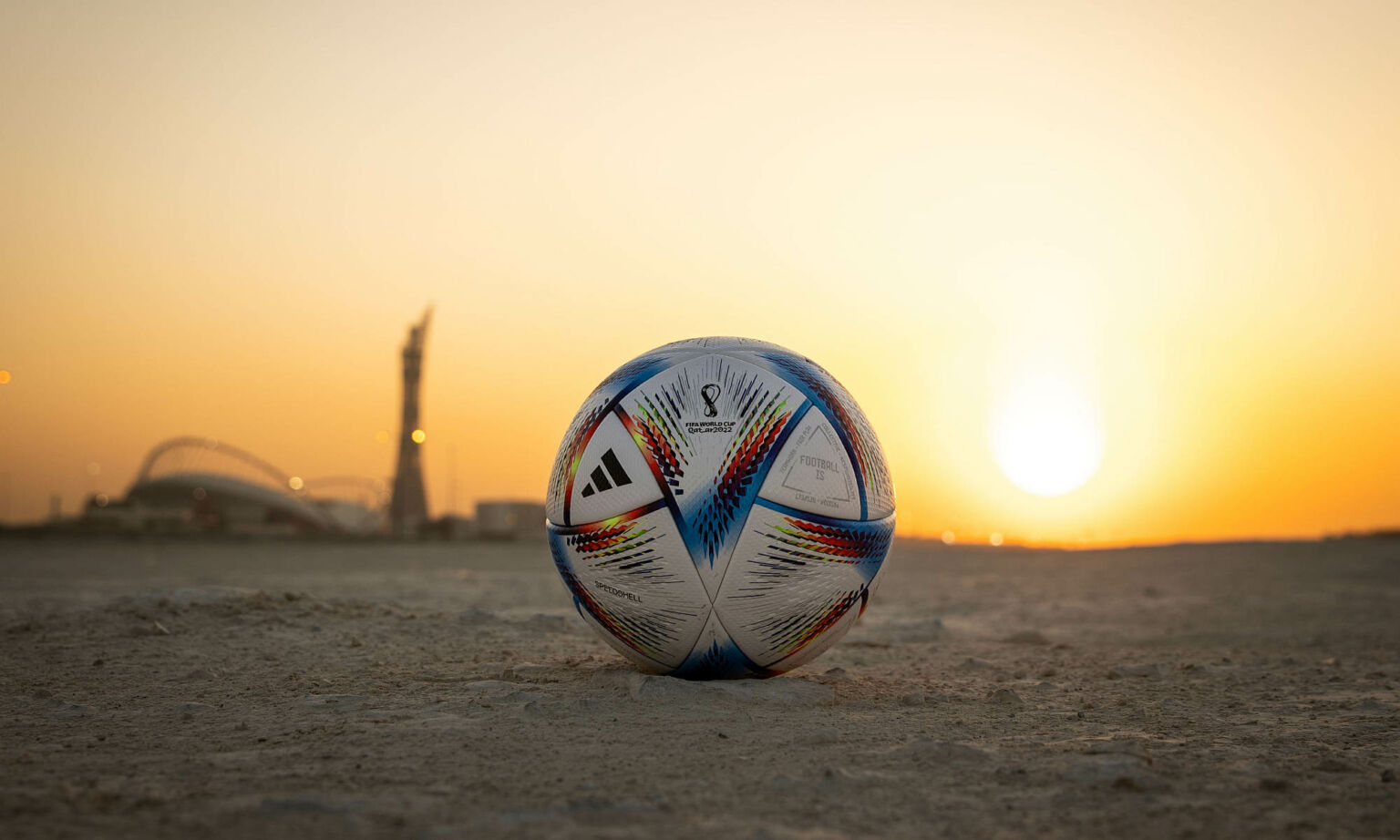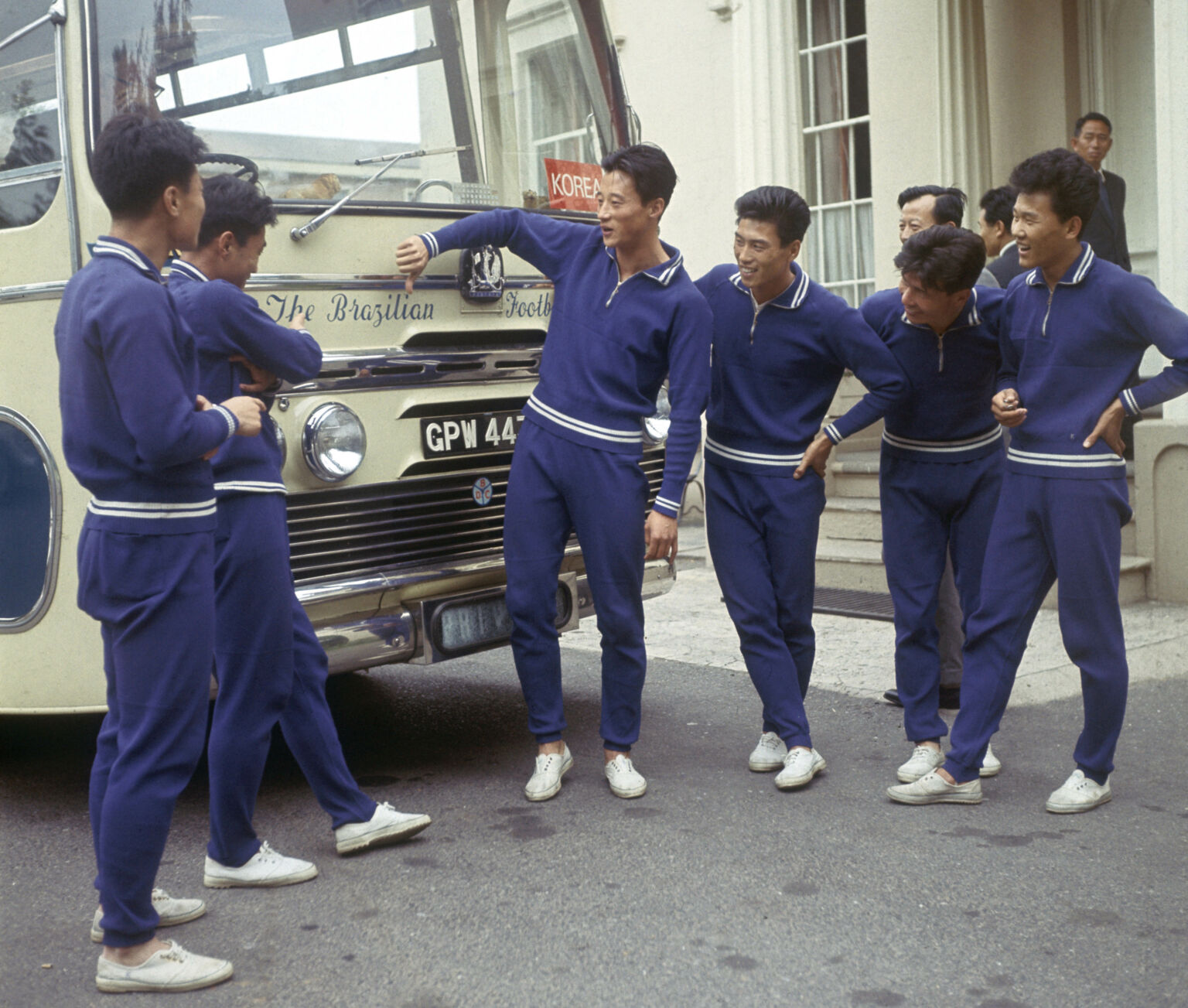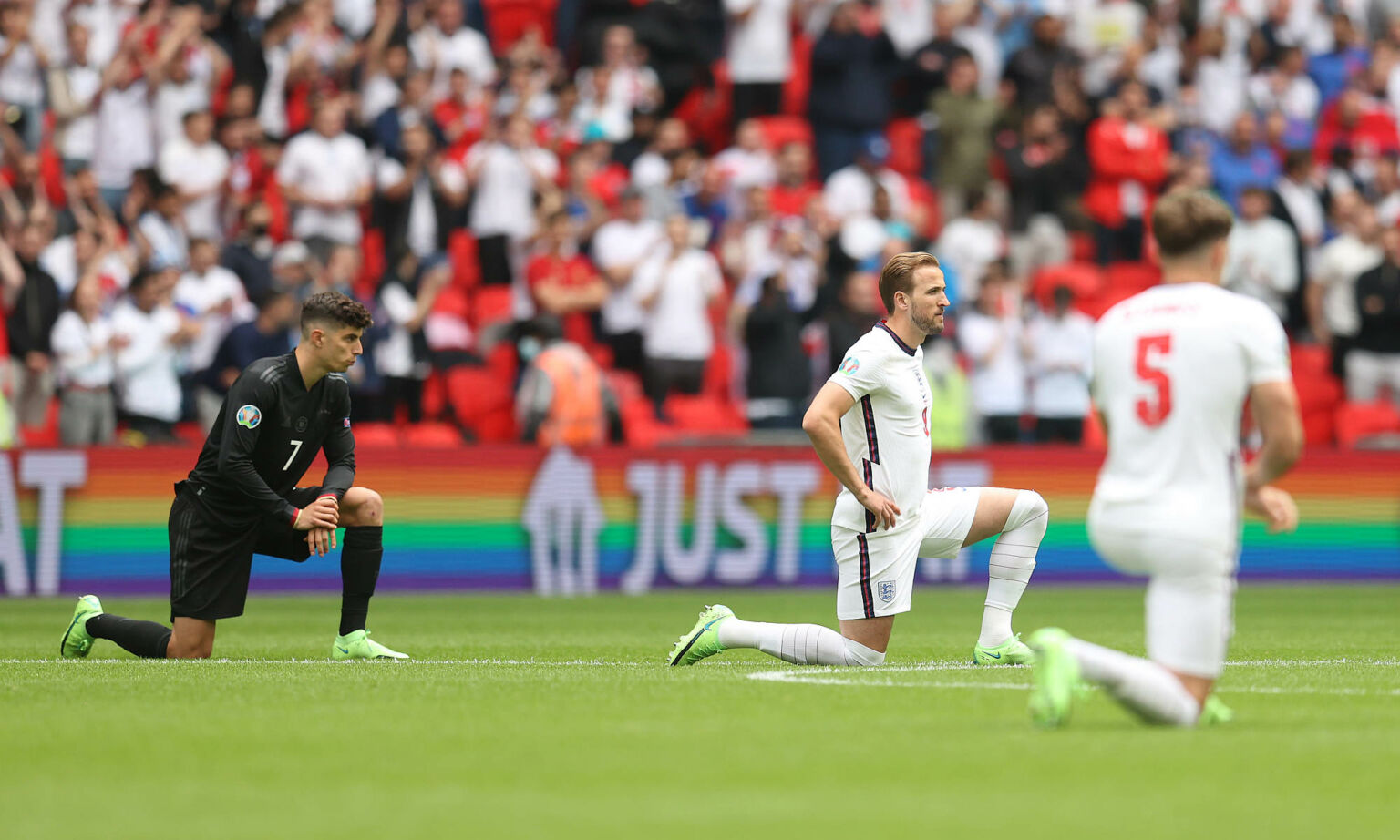
Long-read
The World Cup has always been a political football
But woke soccerism has made Qatar 2022 even worse.
Want to read spiked ad-free? Become a spiked supporter.
In the run-up to the World Cup, the nations of an entire continent voted to boycott football’s biggest tournament, to take a stand against racism and inequality.
But this was not a protest against homophobia and oppression in Qatar, controversial host of the 2022 World Cup. Despite all of their pious posturing about Qatar, there is no chance of football nations sacrificing cash and kudos by boycotting the tournament this time. (Although some might wish they had taken the ethical high ground if they’re knocked out early.)
No, the biggest boycott in international football history happened during the 1966 World Cup in England; now remembered as one of the innocent World Cups of old, a tournament shrouded in golden memories of England’s sole triumph. Long forgotten is that the 1966 World Cup was snubbed by every black nation in postcolonial Africa.
But then, the truth is that the World Cup has always been a political football.
In planning the 1966 World Cup, the world football authority, FIFA, had ruled that, despite now being independent, African nations were still not fit to compete on equal terms. There would be no qualifying place allocated to Africa in the final 16-team tournament. Instead, all FIFA member states from Africa, Asia and Oceania – which together accounted for some two-thirds of the world’s population – would have to play off for one place between them.
To make matters worse, notoriously reactionary FIFA president Stanley Rous proposed to lift the suspension imposed on South Africa, and allow the racist Apartheid state to take part in qualifying. Rous wanted to accept South Africa’s bizarre proposal to play an all-white team in the 1966 World Cup, and then an all-black one in 1970.
Africa refused to take part. This boycott was about more than a demand for formal sporting egalitarianism. (After all, on the football pitch everybody really is not equal.) Africa’s footballers would not just have been making up the numbers. The ‘Black Stars’ of Kwame Nkrumah’s Ghana were fancied to shine in England; they were double African champions, and their top forward, Osei Kofi, was put on a par with the genius George Best by no less a judge than England’s World Cup-winning goalkeeper, Gordon Banks.
Look at the impact made by the one Asian team to qualify from FIFA’s three-continents play-offs for 1966 – Communist North Korea. In England, the North Korean minnows shocked the giants of Planet Football, defeating mighty Italy and then leading 3-0 against Portugal before losing 5-3, finally beaten by the tournament’s top scorer, Eusébio – himself from the still-Portuguese colony of Mozambique in southern Africa.

As Qatar 2022 kicks off, it is worth recalling the African boycott of England 1966 as a reminder that there is nothing new about political controversies surrounding the most popular sporting event on Earth. It would be hard to find a World Cup that did not get bogged down in corruption scandals and political rows before a ball was kicked.
FIFA’s award of the first-ever World Cup to Uruguay (the Olympic football champions) in 1930 caused even more outrage in European football circles than the decision to stage the 2022 contest in the Qatari desert, with several countries refusing to travel to South America (even though the Uruguayan government offered to pay their expenses).
During the Great Depression, dictator Benito Mussolini ensured that Italy was the only big-money bidder to stage the second World Cup in 1934, which Il Duce saw as a footballing showcase for fascism. (The reigning champions, Uruguay, boycotted the tournament in retaliation for the Europeans failing to show up in 1930.)
Mussolini’s top propagandist, Achille Starace, who made the straight-armed fascist salute a part of Italy’s civic life, bombarded the Italian public with World Cup posters, stamps, cigarettes and radio broadcasts throughout the tournament. After Italy became champions (deservedly, despite rumours of the fascist regime hand-picking referees), the authorities blasted out the fascist anthem ‘Giovinezza’ and the winners were presented with not just the official Jules Rimet trophy, but also Mussolini’s specially commissioned cup, six times the size of the World Cup itself. Officials from Nazi Germany attended the final; four days later, Mussolini met Hitler for the fist time and sealed their fascist Axis.
When FIFA then awarded the 1938 World Cup to France, rather than alternating between Europe and Latin America as agreed, Argentina and Uruguay boycotted the tournament again. Nazi Germany would almost certainly have staged the World Cup in either 1942 or 1946, had Hitler’s immediate plans not changed to starting a real world war; it might have been interesting to see who did and did not take part.
Once the postwar World Cup recommenced in Brazil in 1950 (the first time the snooty English Football Association deigned to join in), political and financial skulduggery also returned in force. Ever since, as the World Cup has grown bigger, so have the rows over the alleged use of backhanders and political arm-twisting to secure hosting rights, culminating in the scandal over Qatar buying this one.
Nor is this the first time that the modern World Cup has been staged under the auspices of a repressive regime – though boycotts have become rarer as the World Cup has grown in global stature. In 1978, for example, Argentina won the World Cup on home soil. A short walk from the Monumental Stadium in Buenos Aires where the final was played, fans could pass the former Navy Mechanics’ School, which Argentina’s military dictators were then using as a camp for political prisoners. Thousands of ‘the disappeared’ were locked up, tortured and executed by the regime that claimed the World Cup as a win for all Argentinians. Many complained that the granting of the 2018 World Cup to Putin’s Russia was another political own goal from FIFA; yet by the end of the tournament, much of the media were over-hyping it as ‘the greatest-ever World Cup’.
Many of the past World Cup rows and scandals disappeared from the news the moment the actual football started, and have long since faded from public memory. Will Qatar 2022 be different? The run-up to the tournament has arguably been marked by even more controversy than ever before. And there seems considerably less advance enthusiasm for this mid-season winter World Cup. So, will the football itself be able to overcome the pre-tournament political ruckus this time?
When it comes to alleged corruption, granting the World Cup to tiny, oil-rich Qatar looks like a more blatant case of what has always gone on, rather than a new development. Disgraced former FIFA chief Sepp Blatter, who was in charge at the time, recently blamed that 2010 decision on a grubby stitch-up involving billionaire Arab sheikhs, France’s then president Sarkozy, and former head of European football Michel Platini. The only ‘shocking’ part of Blatter’s revelation was the suggestion that his hands remained miraculously clean.
What has really changed around this World Cup is the role of politics in football, and vice versa. We are witnessing a new stage in the advance of ‘soccerism’ – a term I have used to describe the use of football for political ends.

Over recent decades, political and cultural elites in Britain and the West have sought to use the popularity of football to connect with and re-educate the masses. These people claim to love the ‘beautiful game’, yet fear and loathe the ‘ugly’ working-class people who watch it.
Soccerism began as an attempt by the likes of Tony Blair to forge a popular national identity around football, at a time when the St George’s flag of the England team had become far more popular than any political emblem. But soccerism has since evolved to become a vehicle for the woke identity politics now espoused by our elites.
Through endless virtue-signalling measures – from clamping down on ‘offensive’ language and naughty songs in stadiums to setting up knee-taking players as role models for supporters – the Nu Football elitists have tried to sanitise the game and disinfect the minds of the crowd. Their aim has been to get us to take the mental knee to the politically correct new rules of the game.
The run-up to Qatar has brought these tendencies to new heights, with a sudden burst of outrage over the longstanding repressive treatment of LGBT people in the Arab state. There have also been slightly less vocal, but no less belated, protests about the abuse of migrant workers who built the stadiums.
As Tim Black has noted on spiked, we have seen a welcome ‘bonfire of the virtue-signallers’, with pundits who have tried to use football as a platform for woke sermonising being exposed for taking the sheikhs’ shilling in Qatar.
But that has not halted the wave of empty virtue-signalling from the rest of the media and football authorities. However they might fare on the football pitch, England have been making it a conscious pre-tournament challenge to win the wokeness world cup, proclaiming that captain Harry Kane will wear a Pride armband and flying out to Qatar on Virgin’s ‘Rain Bow’ aircraft.
This follows on from England head coach / chief counsellor Gareth Southgate’s declaration last year that England players should continue the right-on ritual of taking the knee before matches in order to ‘educate people around the world’. And to think we used to boast about teaching them how to play the game. Now the England players are reportedly having a big team meeting to discuss whether or not to take the knee before matches in Qatar. With only a few days to prepare for what could be the biggest games of their lives, some of us might naively have imagined they’d have more important things to talk about.
The rise of soccerism and pious sermonising can only increase the distance between the official Planet Football and everyday fans. There seems a palpable lack of advance popular enthusiasm for this World Cup, except perhaps among the groups of cookie-cutter Stepford supporters of each country who have reportedly been paid by the Qatari government to sing from an official hymn sheet. The relatively few proper England and Wales fans who have travelled to the weird world of Qatar seem stunned by the stifling accommodation and sobering prices for beer, if they can even find one. Many fans at home so far appear more annoyed by the interruption to the domestic season than excited by the coming World Cup.
Can the Qatar World Cup overcome these barriers in time-honoured fashion, once the actual football gets going and passions start rising on and off the pitch? What chance that teams and commentators will follow FIFA’s request to set aside politics now and focus on the game? (Leaving aside of course the obvious absurdity of such a statement coming from the soccerists of Zurich.)
We shall see. On the football side, there does not appear to be any obviously outstanding team waiting to set this tournament alight. The two great players of our age, Argentina’s Lionel Messi and Cristiano Ronaldo of Portugal, are both past their peak and seeking some fading glory in their last World Cup. Let us hope that some new world stars emerge on the biggest stage, as so often before – and that younger ones such as France’s mercurial Kylian Mbappé, already a World Cup winner, can fulfil expectations of greatness.
As for England, our perennial bridesmaids… If they do well in their winnable-looking ‘Group of Hate’ matches against Iran, the US and feisty home rivals Wales, no doubt public enthusiasm will ignite. But at this stage glory seems a distant prospect.
Last year, Southgate’s safety-first ‘lockdown football’ ultimately cost England their best chance to win the European championship. As I noted on spiked at the time, ‘if the housewives’ favourite couldn’t win the Euros at Wembley, I’m not sure about his chances of playing the all-conquering romantic sheikh in the Qatari desert’. Since then, while St Gareth has preached the need for England to ‘educate’ the world in wokeness, his dull, defensive team has been taught footballing lessons by teams including the Hungarians, who have not qualified for Qatar.
But still, forget the BS, bring on the football and the beer. We could surely do with something to cheer up the nation.
Back in 1938, when the World Cup was in its infancy, and the English FA still deemed it a pony show for foreign fancy dans that was not worth bothering with, the British foreign office infamously ordered the England football team to give the Hitler salute before a game in Nazi Germany. Now, in another century, when the circumstances and the issues are very different, crusading woke soccerists insist that the England team make alternative political gestures in reactionary Qatar.
As ever, the chant from fans to all those who would use football for their political ends should be: can we have our ball back, please?
Mick Hume is a spiked columnist. The concise and abridged edition of his book, Trigger Warning: Is the Fear of Being Offensive Killing Free Speech?, is published by William Collins.
Pictures by: Getty.
Who funds spiked? You do
We are funded by you. And in this era of cancel culture and advertiser boycotts, we rely on your donations more than ever. Seventy per cent of our revenue comes from our readers’ donations – the vast majority giving just £5 per month. If you make a regular donation – of £5 a month or £50 a year – you can become a and enjoy:
–Ad-free reading
–Exclusive events
–Access to our comments section
It’s the best way to keep spiked going – and growing. Thank you!







Comments
Want to join the conversation?
Only spiked supporters and patrons, who donate regularly to us, can comment on our articles.